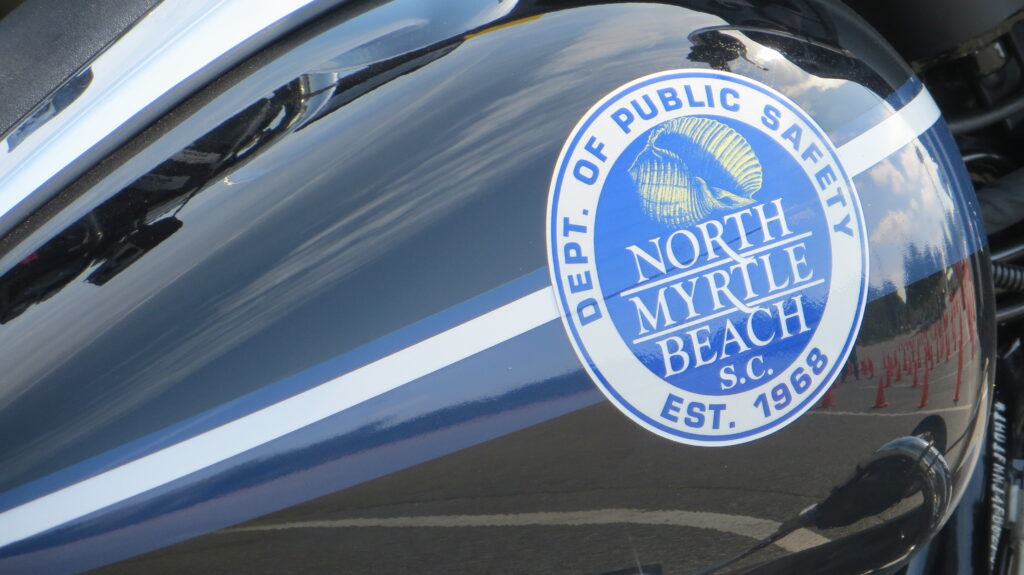Addressing Excess Water Use: A North Myrtle Beach Public Safety Issue

Table of Contents
The Dangers of Excess Water Use in North Myrtle Beach
The consequences of unchecked excess water use in North Myrtle Beach are far-reaching and deeply concerning. Let's examine the most pressing dangers:
Strain on Water Resources
North Myrtle Beach, like many coastal areas, faces the challenge of limited freshwater resources. Our reliance on groundwater sources, such as wells and aquifers, makes us particularly vulnerable to depletion. The rapid population growth fueled by tourism further exacerbates this strain.
- Current Water Usage Statistics: [Insert relevant statistics on current water usage in North Myrtle Beach, if available. Source the statistics.]
- Potential for Depletion: Continued high consumption at the current rate risks severe depletion of our aquifers, leading to water scarcity and potential shortages.
- Water Sources: Our primary water sources are [specify the main water sources for North Myrtle Beach]. These resources are finite and require careful management. The concept of "water scarcity" is no longer theoretical; it's a looming reality we must confront. Sustainable water use strategies are crucial for our long-term survival.
Environmental Consequences
Excessive water use has devastating environmental repercussions. Our coastal ecosystem, the very lifeblood of North Myrtle Beach’s tourism industry, is incredibly sensitive to water stress.
- Effects on Wetlands: Over-extraction of groundwater can lead to the drying up of vital wetlands, destroying critical habitats for numerous species.
- Saltwater Intrusion: Depleted freshwater aquifers become vulnerable to saltwater intrusion, contaminating drinking water supplies and rendering them unusable.
- Impact on Local Wildlife: Water scarcity directly impacts local flora and fauna, disrupting the delicate balance of the coastal ecosystem. Sustainable water use is paramount for preserving this precious environment.
Public Health Risks
Water shortages can directly threaten public health. Reduced water availability compromises sanitation, increasing the risk of waterborne diseases.
- Potential Diseases: A lack of access to clean water can lead to outbreaks of diseases like cholera, typhoid, and other waterborne illnesses.
- Impacts on Sanitation: Inadequate sanitation due to water restrictions directly impacts public hygiene and increases the spread of infectious diseases. The importance of water safety cannot be overstated in this context.
Identifying the Causes of Excess Water Use
Understanding the root causes of excess water use is crucial to developing effective solutions. Several key factors contribute to the problem:
Inefficient Irrigation Practices
Many residential and commercial properties in North Myrtle Beach employ inefficient irrigation methods, leading to significant water waste.
- Examples of Inefficient Practices: Overwatering, using outdated sprinkler systems, and neglecting to consider microclimates.
- Suggestions for Improvement: Implementing drip irrigation systems, using smart sprinklers with soil moisture sensors, and choosing drought-tolerant plants are vital components of water-wise landscaping.
Leaky Pipes and Infrastructure
Aging water infrastructure contributes significantly to water loss through leaks and breaks in the system.
- Statistics on Water Loss Due to Leaks: [Insert relevant data, if available, on water loss due to leaky pipes in North Myrtle Beach. Source the statistics.]
- Cost of Repairs and Replacements: Repairing and replacing aging infrastructure is a significant investment but is essential for long-term water conservation and public safety. Investing in robust water infrastructure is a key step toward improving water management.
Lack of Public Awareness
Limited public awareness about water conservation significantly impacts overall water consumption.
- Suggestions for Improving Public Awareness: Implementing comprehensive public education campaigns, organizing community outreach events, and providing accessible resources on water conservation techniques. The key is community engagement. Effective water conservation awareness campaigns are crucial.
Solutions and Strategies for Reducing Excess Water Use
Addressing excess water use requires a multi-faceted approach encompassing technological advancements, policy changes, and community engagement:
Implementing Water-Efficient Technologies
Encouraging the adoption of water-efficient appliances and irrigation systems is a crucial step.
- Examples of Water-Efficient Technologies: Low-flow showerheads, dual-flush toilets, and smart irrigation controllers.
- Incentives for Residents and Businesses: Offering rebates, tax incentives, or other financial incentives to encourage the adoption of water-efficient technologies.
Enacting Water Conservation Regulations
Implementing water conservation regulations is essential for responsible water management.
- Examples of Regulations: Establishing water restrictions during peak seasons, implementing tiered water rates that incentivize conservation, and enforcing penalties for excessive water use. These water conservation policies should be tailored to the specific needs of North Myrtle Beach.
- Potential Benefits and Drawbacks: Carefully consider the potential impacts on residents and businesses when implementing water restrictions.
Fostering a Culture of Water Conservation
Community involvement is key to successful and sustainable water conservation.
- Examples of Community Initiatives: Organizing water conservation contests, conducting educational workshops, and establishing community gardens that promote water-wise landscaping practices. Community water conservation efforts are essential.
- Sustainable Water Practices: Promote the adoption of sustainable water practices throughout the community. Water stewardship should be a shared responsibility.
Conclusion
The dangers of excess water use in North Myrtle Beach are undeniable, impacting our environment, public health, and economic stability. By understanding the causes – inefficient irrigation, aging infrastructure, and a lack of public awareness – we can implement effective solutions. Adopting water-efficient technologies, enacting sensible regulations, and fostering a community-wide culture of conservation are crucial steps towards ensuring the long-term sustainability of our water resources. Let's all pledge to conserve water, reduce our water footprint, and support North Myrtle Beach water conservation efforts. By working together, we can safeguard our community's future and ensure public safety for generations to come. Remember, responsible water management is a shared responsibility – let's act now to protect our precious resource.

Featured Posts
-
 Architectures Identity Crisis An Interview Exploring The Effects Of Virtue Signaling
May 26, 2025
Architectures Identity Crisis An Interview Exploring The Effects Of Virtue Signaling
May 26, 2025 -
 The Best Office Chairs For 2025 Comfort And Support
May 26, 2025
The Best Office Chairs For 2025 Comfort And Support
May 26, 2025 -
 Comment Elon Musk Utilise X Pour Promouvoir L Extreme Droite Europeenne
May 26, 2025
Comment Elon Musk Utilise X Pour Promouvoir L Extreme Droite Europeenne
May 26, 2025 -
 Renewed Pushback Car Dealers Against Mandatory Electric Vehicle Sales
May 26, 2025
Renewed Pushback Car Dealers Against Mandatory Electric Vehicle Sales
May 26, 2025 -
 Ardisson Et Baffie Une Brouille Durable Con Et Machiste Accusations Recurrentes
May 26, 2025
Ardisson Et Baffie Une Brouille Durable Con Et Machiste Accusations Recurrentes
May 26, 2025
